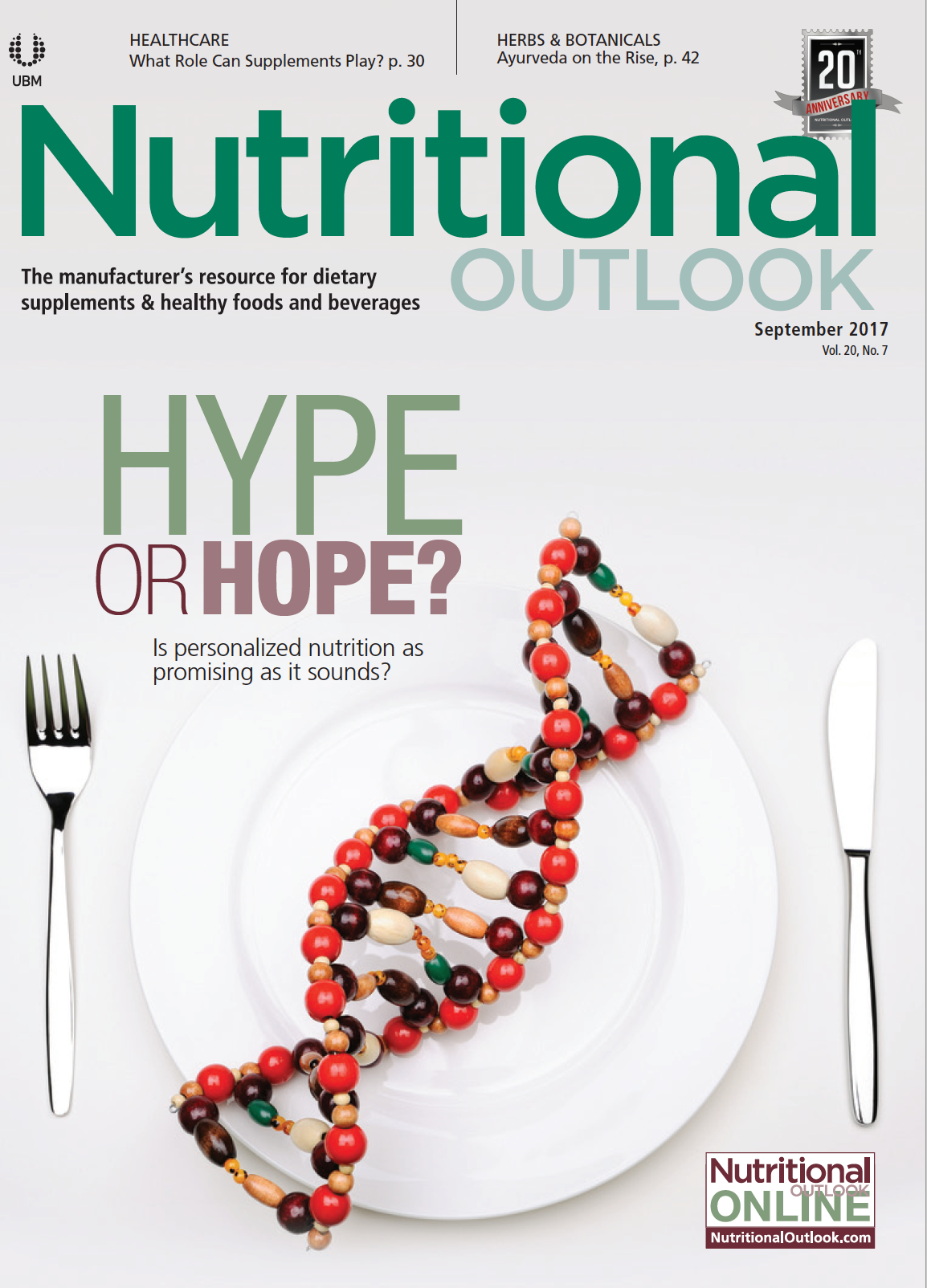Calcium: Strong Bones, Weak Heart?
Do calcium supplements really increase cardiovascular risk? Here’s what the latest research says.
Photo © Shutterstock.com/ULV

Calcium is an essential mineral supporting multiple physiological processes. Well known for its role in bone health-99% of the body’s calcium is stored in bone tissue-calcium is also critical for cellular function because it acts as a facilitator of cell signaling.1 Calcium is stored as hydroxyapatite crystals, which is what provides rigidity to bone tissue and helps to minimize fracture risk. Thus, calcium is indispensable for healthy bones.
Some recent investigations, however, relate calcium intake with a higher risk of heart disease. Because calcium also supports heart muscle contraction, the process of blood clotting, and hormonal modulation, some researchers believe that excessive calcium intake may contribute to increased cardiovascular risk.2 This has also caused some to question the necessity or wisdom of calcium supplementation at all, with some researchers even questioning whether calcium is truly indispensable for bone health.
Given calcium’s essential physiological role, however, it’s hard to imagine this mineral not being critically important to health. Calcium insufficiency is known to lead to bone-tissue defects as well as adverse impacts on several other bodily functions. The challenge is to sort through the recent studies in an attempt to understand whether calcium intake truly leads to elevated cardiovascular risk, what a sufficient intake level of calcium might be, and what other factors may play a role in supporting calcium supplementation in a healthy way. Striking a happy medium with respect to a balanced and beneficial intake of calcium is critical for supporting health while avoiding any unwanted or undesired effects.
Increased Cardiovascular Risk with Calcium Supplements?
A recent study led by John Anderson of the Gillings School of Public Health at the University of North Carolina (Chapel Hill, NC) looked at the risk of cardiovascular events associated with dietary and supplemental intake of calcium.3 Participants were free of cardiovascular disease at inclusion and were followed for 10 years.
The study included 5,448 adults aged 45 to 84. At baseline, researchers measured subjects’ total calcium intake from dietary sources and from calcium supplements. Participants were then divided into five groups based on their average daily calcium intake. Coronary artery calcification was also assessed at baseline.
In the 1,567 participants who had no coronary artery calcification at baseline, higher total calcium intake over the 10-year period was found to lower the risk of atherosclerosis. The highest intake of total calcium (average of 2157 mg/day) was associated with a relative risk of developing coronary artery calcification of 0.73.
However, the authors found that calcium supplement use was associated with an increased relative risk of coronary artery calcification of 1.22. Based on this data, the researchers concluded that high total dietary calcium intake had a protective effect on atherosclerosis, while the use of calcium supplements may increase the risk of coronary artery calcification.
Offering a hypothesis for this apparent paradox, the authors postulate that calcium intake from supplements presents a bolus dose to the body. This large, one-time dose leads to transiently elevated serum calcium concentrations, which can then potentially lead to vascular calcification and other adverse effects.3 Calcium from food, on the other hand, does not lead to such bolus doses and can, therefore, be more effectively utilized by the body. Furthermore, the authors cite previously published evidence suggesting that healthy adults require a total dietary calcium intake of between 550 and 1200 mg/day to account for the calcium needs of the body and to maintain zero net balance. Additional studies have shown that calcium intakes greater than 1400 mg/day can result in positive calcium balance, an amount of calcium in excess of what the body needs.
Mark Bolland’s group from the University of Auckland (Auckland, New Zealand) has also conducted several analyses of data from randomized controlled trials indicating an elevated risk of cardiovascular events related to calcium supplementation. A secondary analysis of a 2008 study which included 1,471 postmenopausal women randomized to receive 1,000 mg of elemental calcium daily as calcium citrate over a five-year period found that the rate of occurrence for myocardial infarctions was significantly higher in the calcium group than the placebo.4 However, the study population was older (average age of 74, with a significant percentage aged 80 or over) and overwhelmingly white, rendering the results less applicable to other populations. Furthermore, nearly 43% of participants discontinued treatment (or placebo) prior to the five-year end point.
Additionally, Bolland’s group conducted a meta-analysis published in 2010 in which they included 15 randomized, placebo-controlled studies of calcium supplementation (>500 mg per day).5 Their analysis and conclusion showed an increased risk of myocardial infarction. The average age of participants from included trials was 75. Studies that included the co-administration of vitamin D along with calcium were excluded from the analysis.
…Or a Reduced CardiovascularRisk with Calcium Supplements?
In contrast to the studies above, the Women’s Health Initiative (WHI) study showed no increased coronary or cerebrovascular risk with calcium supplementation.6 The WHI was a large multicenter study in which 36,282 postmenopausal women aged 50 to 79 were randomized to supplement with 500 mg of elemental calcium (as calcium carbonate) with 200 IU vitamin D3 twice daily, or placebo. After seven years of follow-up, the researchers failed to see an increased risk of myocardial infarction or stroke. The patient population in the WHI tended to be younger (average age of 62) than the individuals analyzed in the studies associating calcium supplementation with increased cardiovascular risk (average age of 75). The WHI subjects were also assigned to supplement with vitamin D, which may have conferred additional protective effects.
An earlier prospective cohort study led by Roberd Bostick at the University of South Carolina (Columbia, SC) assessed the relationship between dietary and supplemental calcium intake and the risk of ischemic heart disease in 34,486 postmenopausal women aged 55 to 69.7 The results of the analysis indicated a substantially reduced risk of heart disease (estimated at a statistically significant 33% risk reduction) with higher calcium intake, whether the calcium was consumed in the form of dietary calcium, supplements, or both.
Furthering the notion of cardiovascular protection associated with calcium supplementation, Josh Lewis and colleagues from the University of Western Australia (Crawley, Australia) evaluated data from a five-year randomized controlled trial of calcium carbonate supplementation along with 4.5 years of follow-up and concluded that calcium supplementation did not increase the rate of death or first-time hospitalization from atherosclerotic vascular disease.8 The study included 1,460 women with an average age of 75 who were randomized to 1,200 mg of calcium or a placebo daily for five years. The analysis also showed that for those with pre-existing atherosclerosis, calcium supplementation actually reduced the risk of hospitalization and mortality.
Divided Opinions
Clearly, based on the state of current research, there is a discord of opinion regarding what effects on cardiovascular health calcium supplementation truly has. In an editorial published in 2013, Rajib Bhattacharya from the University of Kansas Medical Center (Kansas City, KS) states that concerns regarding calcium supplements and cardiovascular risks are unwarranted.9 He argues that the majority of studies used to assess these potential effects had the risk of fracture as their primary endpoint and not cardiovascular events. In addition, he argues, the secondary analysis of a randomized controlled trial conducted by Mark Bolland’s group4 (and summarized earlier) failed to adequately document concurrent use of cardiovascular medications in the participants, a potentially significant factor in assessing the true nature of cardiovascular events. Bhattacharya further states that none of the trials included in the 2010 meta-analysis by Bolland5 had cardiovascular events as a primary endpoint, nor was data on these events gathered in a systematic manner, making the conclusions incomplete.
In December 2016, the National Osteoporosis Foundation and the American Society for Preventive Cardiology issued a statement and clinical guideline related to calcium supplementation.10 After convening an expert panel to review the existing peer-reviewed evidence related to dietary and supplemental calcium and the effect on cardiovascular disease, the organizations adopted the position that calcium from foods or supplements likely has no relationship to the risk for cardiovascular and cerebrovascular disease, mortality, or all-cause mortality in generally healthy adults. They further concluded that intake levels of calcium from foods and supplements falling within the tolerable upper intake (2,000 to 2,500 mg/day) should be considered safe.
A Nutrient of Concern
Based on data from the National Health and Nutrition Examination Survey (NHANES) 2003-2006, several groups are at risk for inadequate calcium intake.11 Boys and girls aged 9-13, girls aged 14-18, women aged 51-70, and both men and women over 70 all have intake levels falling below the estimated average requirements (EAR) for this nutrient, indicating that at least 50% of individuals in these demographics fall below recommended levels.
Based on this data, the U.S. Department of Health and Human Services (HHS) and the U.S. Department of Agriculture (USDA), in their Dietary Guidelines for Americans, list calcium as a “nutrient of concern.”12 It is, therefore, even more crucial for individuals falling within these groups to ensure an adequate intake of calcium from dietary sources and supplements.
Other Nutritional Factors for Bone Health
In addition to the importance of calcium for bone strength and integrity, there are other nutrients that are arguably just as important for both their direct role in bone health as well as by allowing the body to effectively utilize calcium. Without these nutritional cofactors-including vitamin D, vitamin K2 (menaquinone), and magnesium-calcium and its function in the body is incomplete.
The intake of all three of these nutrients is potentially suboptimal in a large proportion of the population, thereby impacting calcium utilization, bone health, cardiovascular health, and so much more. Studies have shown that up to 70% of U.S. residents had intakes below the EAR for vitamin D13, while nearly half of the U.S. population consumed less than the required amount of magnesium.14 Regarding vitamin K2, research indicates that children as well as adults over the age of 40 are at higher risk of vitamin K2 insufficiency, based on measurements showing a high prevalence of inadequately activated calcium transport proteins in circulation.15
As researchers continue to attempt to definitively answer the question of whether calcium supplements impact cardiovascular health, adopting a comprehensive and holistic approach to bone nutrition and nutritional adequacy in general may be wise. It is important first and foremost to ensure that dietary choices include foods rich in calcium. It is equally important to ensure that the intake of nutritional cofactors of calcium-including vitamin D, magnesium, and vitamin K2-is adequate and optimal.
In addition, where nutritional gaps exist, and for those needing extra support or those that fall into some of the higher-risk groups mentioned earlier, calcium supplements should be utilized to ensure sufficient intake of this important mineral. Efforts should also be maintained to address gaps in calcium intake and other nutritional cofactors for bone health from an early age and throughout life. These measures will go a long way in ensuring that bone health is optimal through the entire lifespan.
Also read:
Bone Health Ingredients Stand Tall in New Research
Greater Calcium, Vitamin D Intake Could Save Billions in Healthcare Costs from Bone Fractures
References:
- Calcium. Linus Pauling Institute (2014). Available at: http://lpi.oregonstate.edu/mic/minerals/calcium. Accessed July 30, 2017.
- Lima GA et al., “Calcium intake: good for the bones but bad for the heart? An analysis of clinical studies,” Archives of Endocrinology and Metabolism, vol. 60, no. 3 (June 2016): 252–263
- Anderson JJ et al., “Calcium intake from diet and supplements and the risk of coronary artery calcification and its progression among older adults: 10-Year follow-up of the Multi-Ethnic Study of Atherosclerosis (MESA),” Journal of the American Heart Association. Published online October 11, 2016.
- Bolland MJ et al., “Vascular events in healthy older women receiving calcium supplementation: randomised controlled trial,” British Medical Journal, vol. 336, no. 7638 (February 2008): 262–266
- Bolland MJ et al., “Effect of calcium supplements on risk of myocardial infarction and cardiovascular events: meta-analysis,” British Medical Journal. Published online June 29, 2010.
- Hsia J et al., “Calcium/vitamin D supplementation and cardiovascular events,” Circulation, vol. 115, no. 7 (February 2007): 846–854
- Bostick RM et al., “Relation of calcium, vitamin D, and dairy food intake to ischemic heart disease mortality among postmenopausal women,” American Journal of Epidemiology, vol. 149, no. 2 (January 1999): 151–161
- Lewis JR et al., “Calcium supplementation and the risks of atherosclerotic vascular disease in older women: results of a 5-year RCT and a 4.5-year follow-up,” Journal of Bone and Mineral Research, vol. 26, no. 1 (January 2011): 35–41
- Bhattacharya RK, “Does widespread calcium supplementation pose cardiovascular risk? No: concerns are unwarranted,” American Family Physician. Published online February 1, 2013.
- Kopecky SL et al., “Lack of evidence linking calcium with or without vitamin D supplementation to cardiovascular disease in generally healthy adults: a clinical guideline from the National Osteoporosis Foundation and the American Society for Preventive Cardiology,” Annals of Internal Medicine, vol. 165, no. 12 (December 20, 2016): 867–868
- Office of Dietary Supplements – Calcium. Available at: https://ods.od.nih.gov/factsheets/Calcium-HealthProfessional. Accessed July 30, 2017.
- Scientific Report of the 2015 Dietary Guidelines Advisory Committee. Available at: https://health.gov/dietaryguidelines/2015-scientific-report/06-chapter-1/d1-2.asp. Accessed July 30, 2017.
- Fulgoni VL et al., “Foods, fortificants, and supplements: where do Americans get their nutrients?” The Journal of Nutrition, vol. 141, no. 10 (October 2011): 1847–1854
- Rosanoff A et al., “Suboptimal magnesium status in the United States: are the health consequences underestimated?” Nutrition Reviews, vol. 70, no. 3 (March 2012): 153–164
- Theuwissen E et al., “Vitamin K status in healthy volunteers,” Food and Function, vol. 5, no. 2 (February 2014): 229–234
























